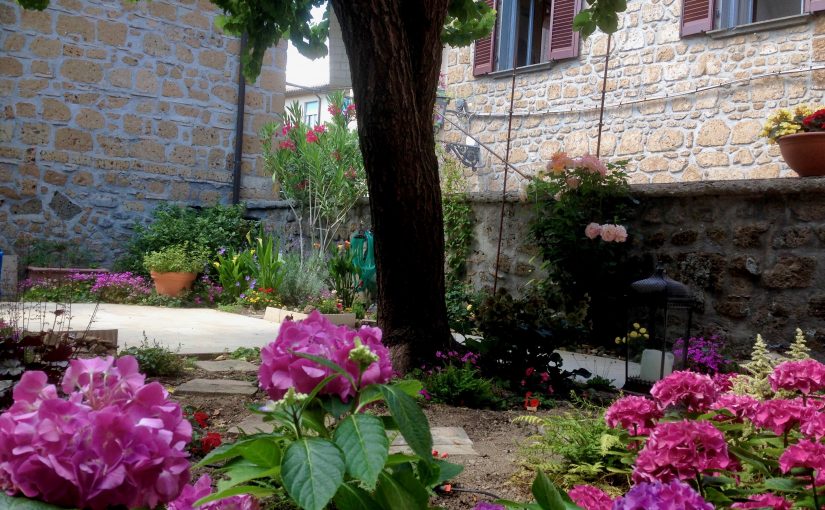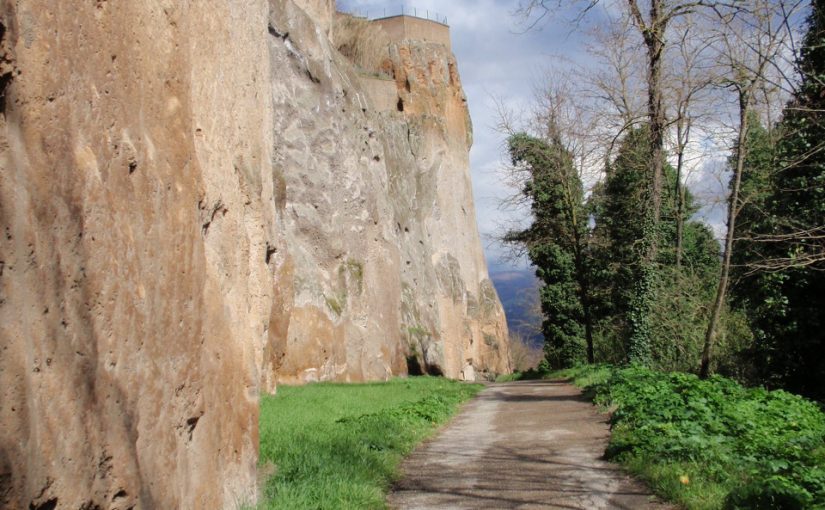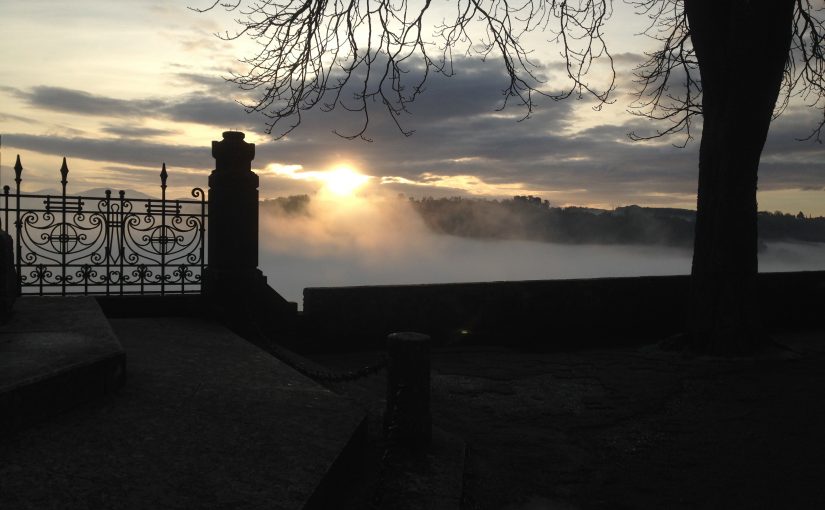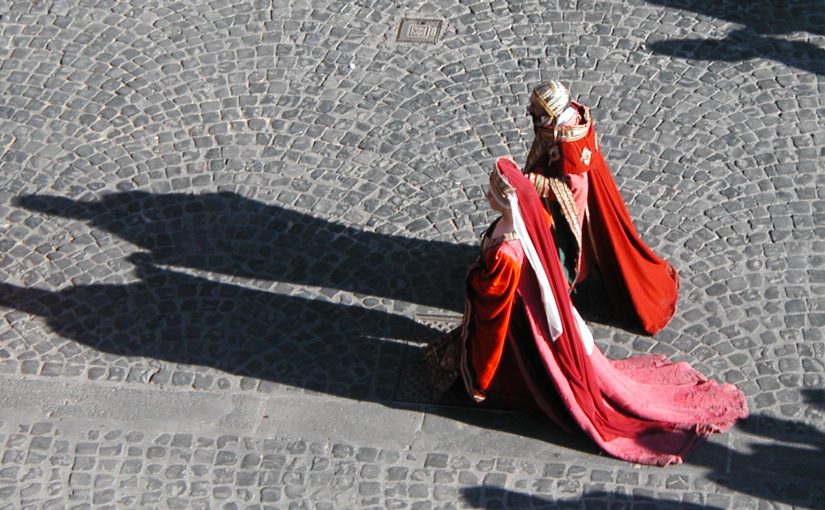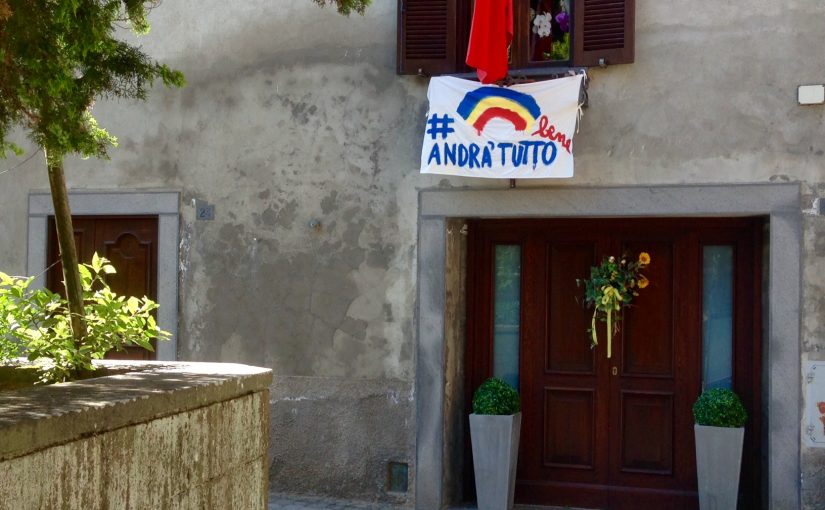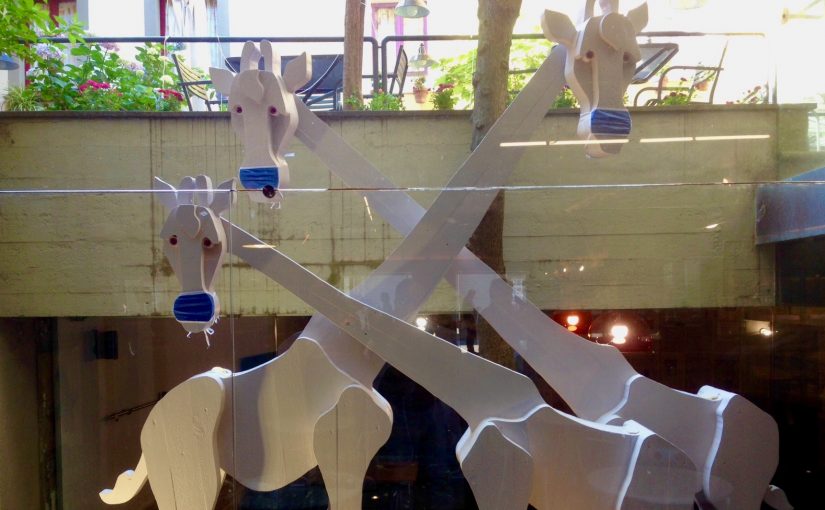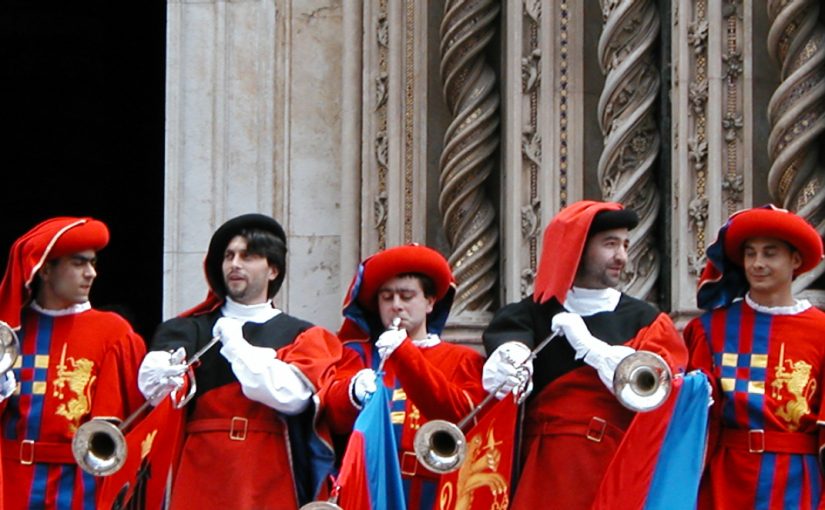Tuesday, and I saw Katrin (physiotherapist) in her new studio in Ciconia, Roy drove me down, drove back up for his shiatsu session, then drove down again to pick me up. Bless his soul. That evening, Claudia drove all the way from Monterubiaglio to give me the short ride to see Dr. Gazzurra; she also acted as translator when needed. Bless her soul.
Katrin is intensely generous, caring, and knowledgable. She spent an hour gently examining calf, tendon, and heel to conclude that there was probably no clot, but that I should have an echo-doppler exam to be safe. Then she called Dr. Gazzurra and Michele (shiatsu) to fill them in. We made another appointment for Monday, assuming that no clot is found. Short on cash because of a lengthly transfer from my stateside bank, I asked her if I could pay her at our next session. She smiled as if to wonder why I would even have to ask.
Dr. Gazzurra reminds me of all good creatures of the earth. Specifically, there is a golden retriever near Piazza Cahen that I frequently scratch just above the tail. I don’t do that for the good doctor, but he has the same dignified composure, kindness, and patient good humor, and I always call the dog, dottore. After his examination, he came to the same conclusions as did Katrin. When I couldn’t understand him behind his mask, Claudia repeated what he said from behind her mask – in Italian – and mostly it worked. The whole thing was worthy of a bit from “I Love Lucy”.
Gazzurra wrote down four recommendations for doctors who could do the exam to increase our chances of getting it done quickly, handed it to me, and I offered it to Claudia. She took it with a smile. The doctor, dressed head to toe in wine red, warmly shook his unruly grey locks, and sent us on our ways with a masked smile, brimming with good cheer.
This morning, Claudia hit the phones. So did I, and cancelled all appointments for today and tomorrow so we could take whatever slots were offered. Those cancelled included two visits with my dentist. I managed to explain to his receptionist why, she managed to understand, and promised to message me with replacements dates. Claudia ran right into the meshed gears of the medical machine; to book an appointment call this number, but only between the hours of… and we’ll put a request underway. She messaged later that we’re going to Todi, then immediately afterwards, no maybe Orvieto. No, probably Todi, and in the heat of the day.
Between Katrin and Gazzurra, there was Massimo. He is the agent who found my current house for me, and connected me with a woman who wants to take advantage of the lull – hell, complete stop – in her BnB business to switch to having a regular tenant. It’s a nice ground floor apartment near San Giovenale with a view and an internal courtyard. I looked at it with Maria maybe two weeks ago, had some questions but in the main it felt like home. Massimo was (is always) accompanied by Oliver, his Jack Russel Terrier, an extremely affectionate little creature who likes to climb onto my lap, even when I’m standing (well, he tries). Massimo and I discussed rent and length of contract. Then he saw a tiny potshard under the apricot tree, showed it to me and declared it to be painted in the style of mid-fourteenth century.
“Those bits are all over the yard!” I told him, and he was on his feet in seconds exploring the mounds of rock and clay I’d piled up as edging.
“Thirteenth century, seventeenth, eighteenth…”
“How do you know so much about ceramic painting styles?”
He kept on finding shards, said something about his family’s palazzo, and dated a dozen other pieces, then picked up a small flower pot and dumped them together.
“Maybe there was an Etruscan cistern here, used as a trash heap until these buildings were put up. Who knows? You’re right, they’re everywhere.”
A few minutes after Massimo left, his friend Gianluca appeared.
“Massimo tells me you’re moving, may I look around? We have a new spaniel, and not having an outdoor space is getting on all our nerves.” He shared photos of a beautiful blond Cocker.
“May I come back tomorrow with Monica?”
“Anytime, just message first.”
Giancarlo next door messaged me just as I returned from seeing Gazzurra.
“How about a frittata for supper?”
“That would be wonderful.”
“Around eight okay?”
“At your convenience.”
And precisely at eight he pushed open the gate, which has not been locked for a week, with a beautiful, piping hot, avocado and cheese frittata laced with green onions and herbs.
Renzo messaged me from the beach.
“Sorry it took so long, reception was bad. How’re you doing?”
“Better, thanks. Giancarlo is a prince.”
“Is he? I’m envious.”
“Don’t worry, you are too!”
“Alright, then.”
